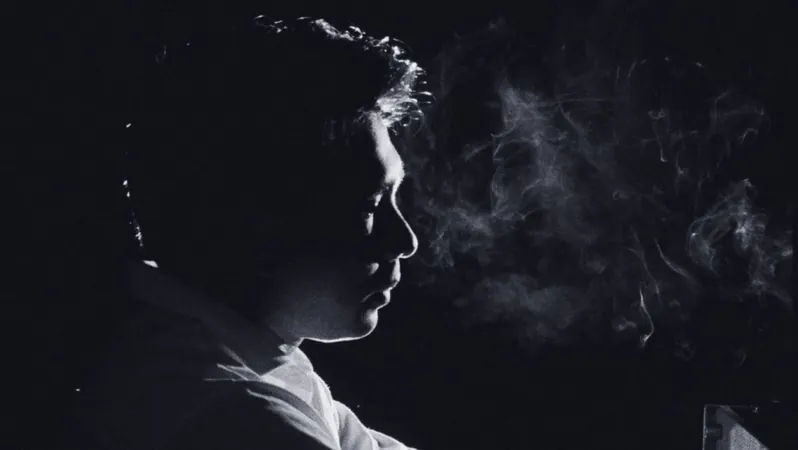
Controversial Singaporean Film on Censorship Banned, Yet Maintains Presence at SGIFF
2024-11-04
Author: Wei
Introduction
A provocative local film that delves into the ramifications of Singapore's judiciary on personal freedoms has been unceremoniously "refused classification" by the Infocomm Media Development Authority (IMDA), causing it to be withdrawn from the lineup of the 35th Singapore International Film Festival (SGIFF).
Film Details
The film, titled *Small Hours Of The Night* and directed by renowned Singaporean filmmaker Daniel Hui, cannot be screened publicly due to IMDA's ruling. In an official statement, the IMDA explained that following deliberations with the Ministry of Law and the Attorney-General’s Chambers, they found the film's content potentially contrary to the law and likely prejudicial to national interests.
Classification Refusal
Under the established Film Classification Guidelines, any material deemed capable of undermining public order or straying into illegal territory is subject to classification refusal.
Support from SGIFF
Despite the restriction, the SGIFF has expressed unwavering support for Hui, the film's award-winning director. Programme Director Thong Kay Wee shared on the festival’s social media that even though the film cannot be shown, Hui will remain visible through various discussions and panels at the festival.
Festival Overview
*Small Hours Of The Night* was meant to be part of the SGIFF's "Undercurrent" segment, aimed at showcasing cutting-edge and experimental cinema. Hui's role at the festival includes contributions to conversations about creative filmmaking and the local industry, providing a platform to discuss his perspectives despite the film's ban.
Hui's Recognition
Scheduled to take place from November 28 to December 8, the SGIFF is known for celebrating diverse cinematic voices. Hui's film had already made a splash on the international scene, premiering at the International Film Festival Rotterdam and receiving accolades as a "rare political work from Singapore." It also debuted in North America at MoMA's Doc Fortnight and was featured at the Taipei International Film Festival as well as the BFI London Film Festival.
Film's Inspiration
The film centers around an interrogation room and draws inspiration from the true story of Tan Chu Boon, a man prosecuted in the 1980s for revolutionary inscriptions on his brother Tan Chay Wa’s grave—shortly before the latter's execution. Tan Chay Wa, a key figure in the Malayan National Liberation Front, was arrested and sentenced to death for possessing illegal arms during Singapore's anti-communist efforts. His execution in Kuala Lumpur in 1983 was followed by his burial back in Singapore. In contrast, Tan Chu Boon faced imprisonment for a year for his actions but had his sentence reduced through appeal.
Production Background
Produced by Tan Bee Thiam and Hui under the banner of 13 Little Pictures, the production benefited from support by Purin Pictures and White Light Studios. Notably, the film received funding from the Tan Ean Kiam Foundation and the SGIFF Southeast Asian Documentary Grant, highlighting the tensions that can exist even within support structures for creative expression.
Director's Response
Hui expressed his dismay regarding the IMDA's decision, pointing out the irony of a film addressing censorship being itself censored. “I am disappointed that viewers worldwide can engage with this work, but not here in Singapore. I remain hopeful for a future where diverse voices can coexist freely in dialogue,” he stated.
Festival Director's Remarks
Thong praised the film as “a gripping psychodrama that deserves to be seen and appreciated,” affirming SGIFF’s commitment to showcasing distinctive narratives that explore themes of time, identity, and memory, despite the challenges posed by state censorship.
Conclusion
Will this political outcry open the floodgates for more discussions about censorship in Singaporean cinema? Only time will tell. Stay tuned as we monitor this developing story!




 Brasil (PT)
Brasil (PT)
 Canada (EN)
Canada (EN)
 Chile (ES)
Chile (ES)
 España (ES)
España (ES)
 France (FR)
France (FR)
 Hong Kong (EN)
Hong Kong (EN)
 Italia (IT)
Italia (IT)
 日本 (JA)
日本 (JA)
 Magyarország (HU)
Magyarország (HU)
 Norge (NO)
Norge (NO)
 Polska (PL)
Polska (PL)
 Schweiz (DE)
Schweiz (DE)
 Singapore (EN)
Singapore (EN)
 Sverige (SV)
Sverige (SV)
 Suomi (FI)
Suomi (FI)
 Türkiye (TR)
Türkiye (TR)